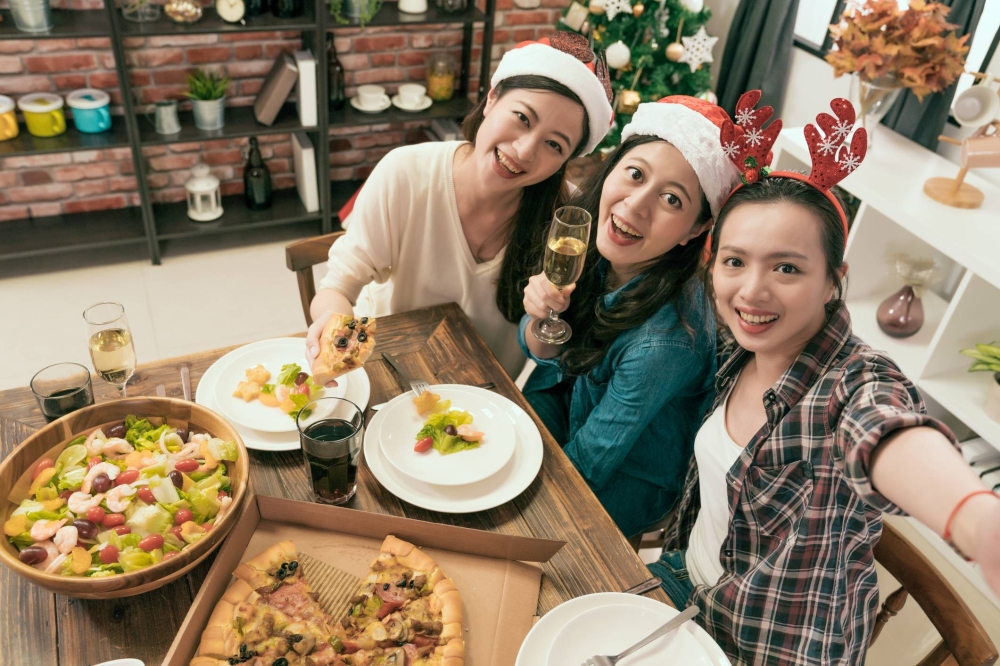During this year’s ホリデーシーズン (horidē shīzun, holiday season), パーティ (pātī, parties) and 飲み会 (nomikai, drinking parties) are officially coming back. In the past four years, quiet おうちクリスマス (ouchi kurisumasu, at-home Christmases) became the mainstream, but now department stores and supermarkets are expecting a shift to a bigger portion of Christmas cakes and meals for those who are planning a ホームパーティ (hōmu pātī, home party).
Japan’s Christmas used to be a litmus paper that categorized people into two groups: リア充 (ria-jū, people living glamorous social lives), who typically have a romantic partner, and 非リア充 (hi-ria-jū, people living unglamorous lives), who need to deal with クリぼっち (kuribocchi, spending Christmas alone). But today this notion is gradually fading, partly because 個食 (koshoku, eating separately or alone) has become much more prevalent.
If you’re invited to a ホームパーティ, how can you get prepared? First, you may want to know that the katakana ポットラックパーティー (pottorakku pātī, potluck party) is often paraphrased as 持ち寄りパーティ (mochiyori pātī) in Japanese. Your party host might ask you, 持ち寄りにしようか? (Mochiyori ni shiyō ka, Shall [we] bring [food] to share?) if it’s a casual gathering. 持ち寄り suggests an act of bringing something together, and it’s not necessarily limited to food. At work, for example, you can say, 案を皆で持ち寄って決めましょう (An o minna de mochiyotte kimemashō, Let’s bring everyone’s ideas and decide [on it]).

